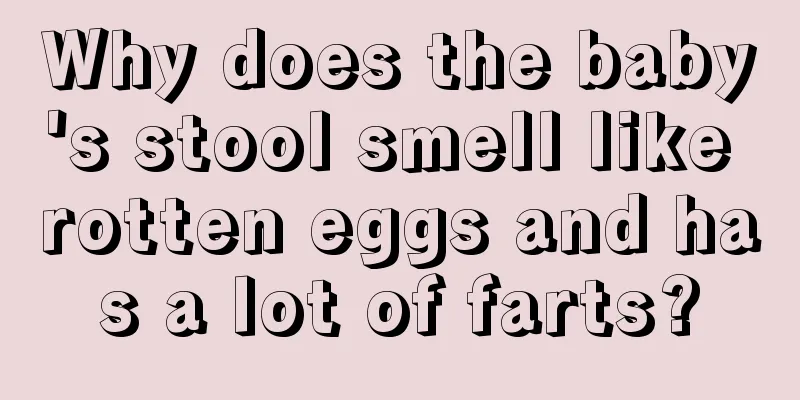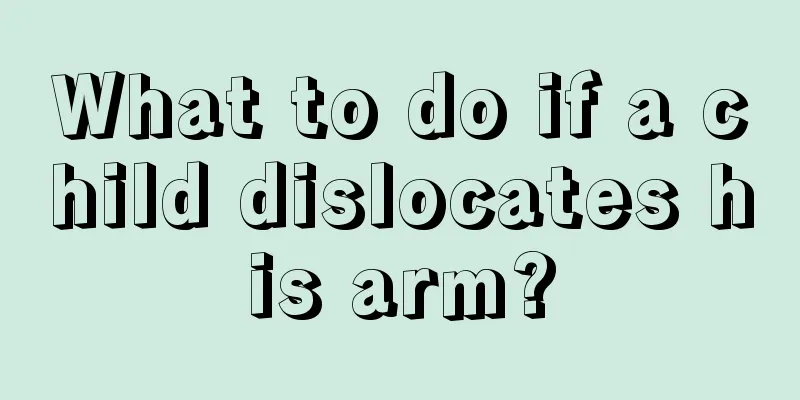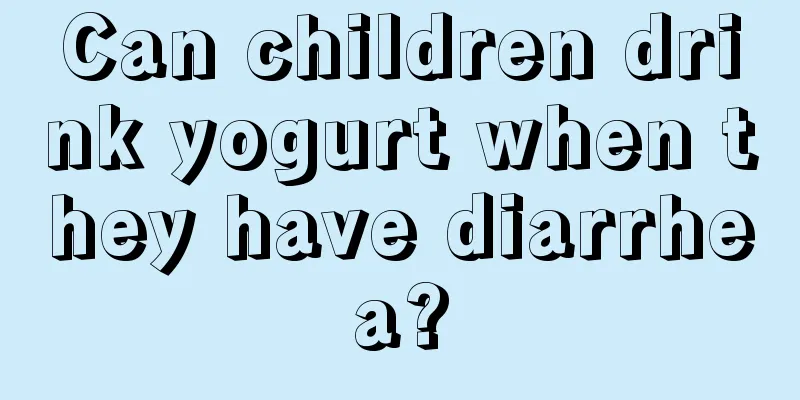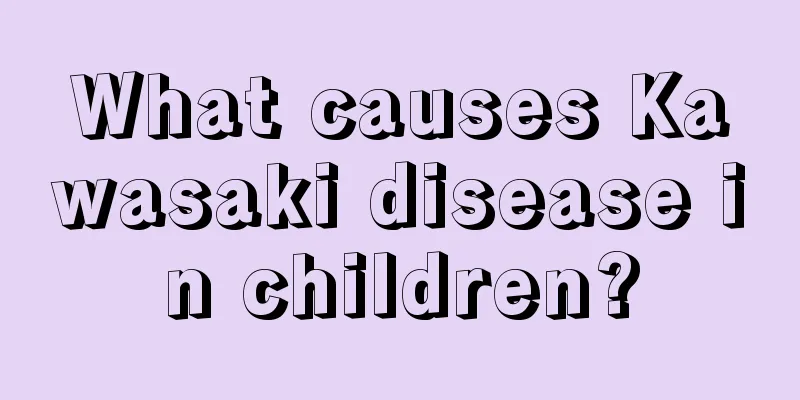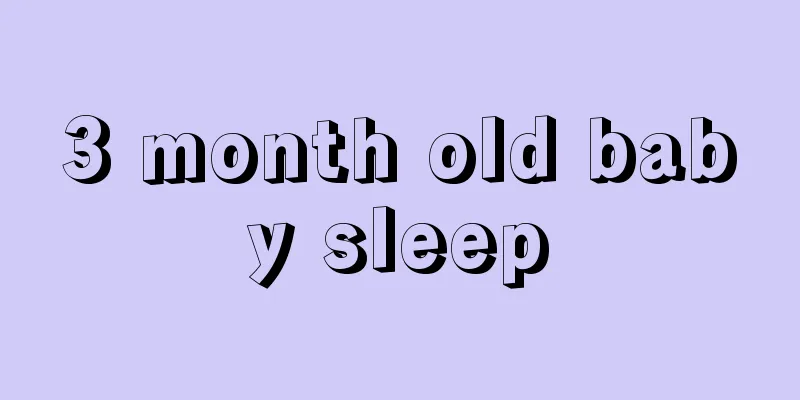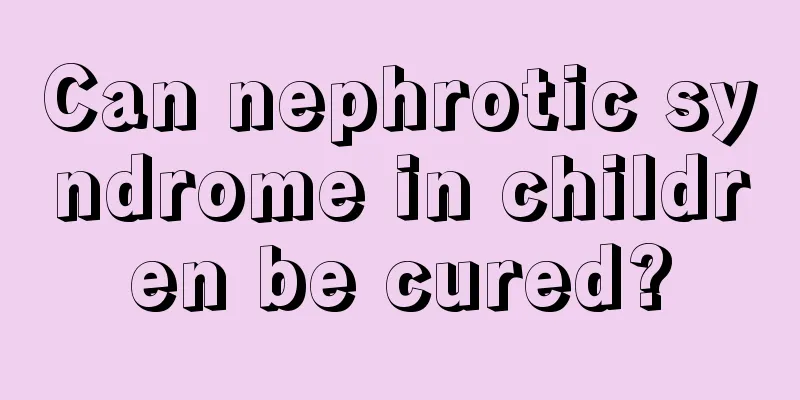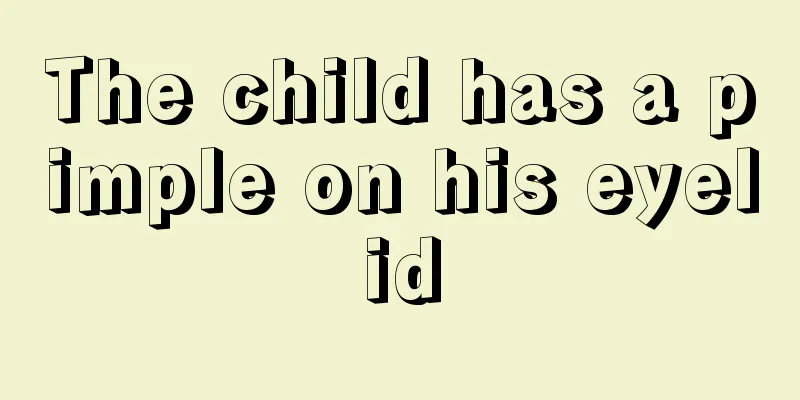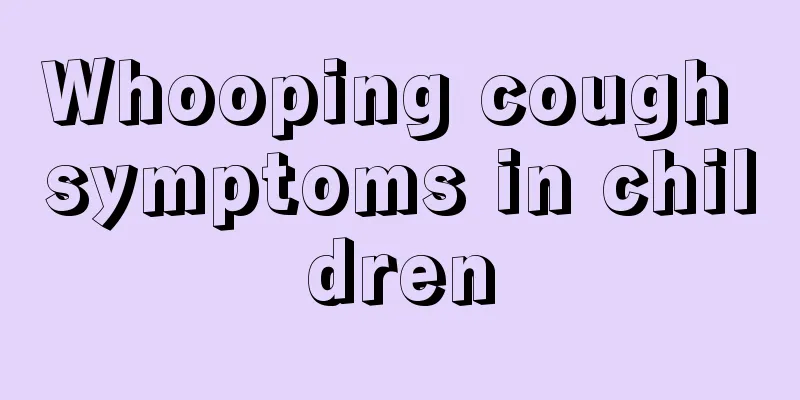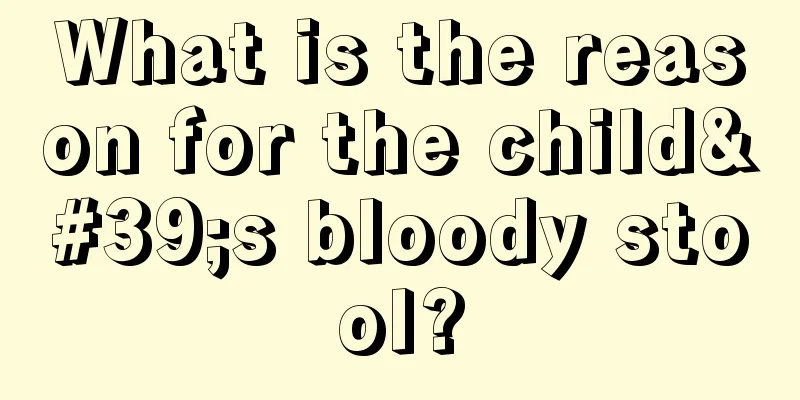What should I do if my child has been coughing for several months and still not getting better?
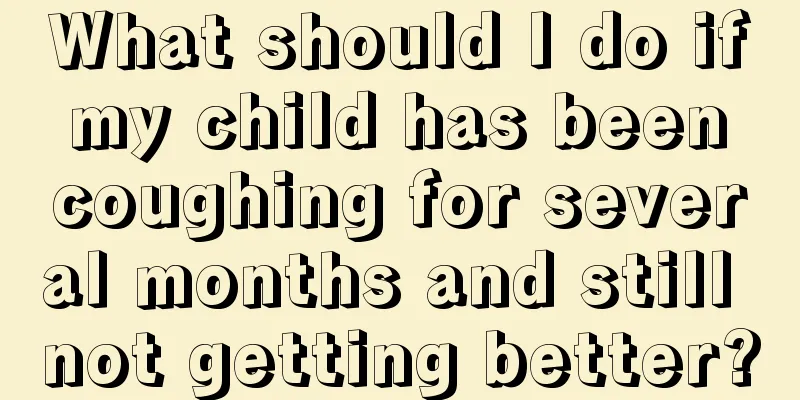
|
Although a mild cough is not a big problem, if you keep coughing, it will affect your mood and make you dizzy due to the long-term coughing vibration. If it is a child, coughing will distract his attention. Long-term coughing will have a great impact on the child's learning state, and parents will also worry whether it will cause other diseases. What should I do if my child has a persistent cough? Cough is one of the symptoms of certain diseases, most commonly respiratory infections, but can also be seen in non-respiratory infections and systemic diseases. However, coughing is also a protective reflex of the body. Children's respiratory tract is very sensitive to various stimuli. Various irritants such as respiratory secretions, foreign objects, irritating gases and odors can easily cause coughing. Coughing helps clear the airways and keep them open. Children's cough can be divided into acute cough and chronic cough according to the course of the disease. An acute cough lasts less than 2 weeks, while a chronic cough lasts for more than 4 weeks. The causes of the two are also different.The causes of chronic cough in children are relatively complex and closely related to age. The younger the age, the greater the possibility of congenital organ abnormalities. The characteristics at the onset of the disease help to diagnose the cause. For example, if a child chokes or vomits while feeding, it often indicates tracheal fistula or gastroesophageal reflux. Nocturnal cough or morning cough with large amounts of sputum should be considered as bronchial dilatation. Dry cough during the day and no cough at night are the hallmarks of psychogenic cough. Coughing paroxysms accompanied by runny nose, nasal congestion, snoring at night, mouth breathing, etc. indicate chronic sinusitis. Cough variant asthma often occurs at night or early in the morning and is often an irritating cough, often triggered by upper respiratory tract infection, inhalation of irritating odors or cold air, contact with allergens, exercise or crying. The cause needs to be identified and treated accordingly. If the cause is unclear, empirical symptomatic treatment can be performed in order to achieve effective control. If the cough symptoms do not improve after treatment, reassessment should be performed. Commonly used drugs are as follows:
If children's cough is accompanied by phlegm, the principle should be to eliminate phlegm. Do not simply suppress the cough, so as not to aggravate or cause airway obstruction. N-acetylcysteine, ambroxol hydrochloride, guaifenesin and traditional Chinese medicine expectorants can be used. 2. Antihistamines Such as chlorpheniramine, loratadine, cetirizine, etc. 3. Antimicrobial drugs Patients with chronic cough that is clearly caused by bacterial, Mycoplasma pneumoniae, or Chlamydia pathogens may consider using antibacterial drugs. People infected with Mycoplasma pneumoniae or Chlamydia trachomatis can choose macrolide antibiotics, including erythromycin, azithromycin, clarithromycin, etc. If antibiotics need to be adjusted after initial empirical treatment for infections caused by other pathogens, they should be selected based on the results of drug sensitivity tests.
Including glucocorticoids, β2 receptor agonists, M receptor blockers, leukotriene receptor antagonists, theophylline and other drugs. It is mainly used for targeted treatment of bronchial asthma, eosinophilic bronchitis, allergic rhinitis, etc. Reassess after 2 to 4 weeks of glucocorticoid treatment. Cough after infection can generally be relieved on its own. For those with severe symptoms, short-term use of inhaled or oral corticosteroids, leukotriene receptor antagonists or M receptor blockers can be considered. 5. Digestive system drugs If gastroesophageal reflux is considered, the use of H receptor antagonists (such as cimetidine) and prokinetic drugs (such as domperidone) is recommended. 6. Antitussive drugs It is not recommended to use strong antitussive drugs for chronic cough, especially before the cause is clear, and the use of such drugs is related to the morbidity and mortality of some diseases. |
<<: How to help your baby have a bowel movement
>>: Why does a child cough when lying down?
Recommend
What to eat in the morning for children?
Children are the fruits of their parents' lov...
What are the benefits of children learning dance?
Nowadays, many parents pay special attention to t...
The harm caused by excessive zinc supplementation to children
In order to ensure the healthy growth of their ch...
The harm of the baby hitting the back of the head
The back of the baby's head is the most vulne...
What are the dangers of anal bleeding in children?
Nowadays, most children are only children and are...
What is the dietary therapy for anemia in children?
In life, many mothers may encounter the phenomeno...
What to do if a child has rubella? Experts introduce effective treatments!
Very young infants and young children have very p...
What should I do if my 4-month-old baby has a stuffy nose?
Almost every parent with a child will encounter t...
Comprehensive knowledge of parenting for older children
Kindergarten is the first time that a baby has to...
What to do if your six-month-old baby has diarrhea
Baby diarrhea is a very common disease in pediatr...
Children's breakfast noodles recipe
Children's bodies are in the most critical pe...
How to treat children's enlarged nasal conchae?
Turbinate hypertrophy is now a common disease. It...
What medicine is used for conjunctivitis in children
Conjunctivitis is a common clinical disease. Ther...
Introduction to myocardial injury in children
After many children are born, it is difficult for...
What to do if your baby is zinc deficient at one year old
Zinc deficiency is a very common disease for one-...

